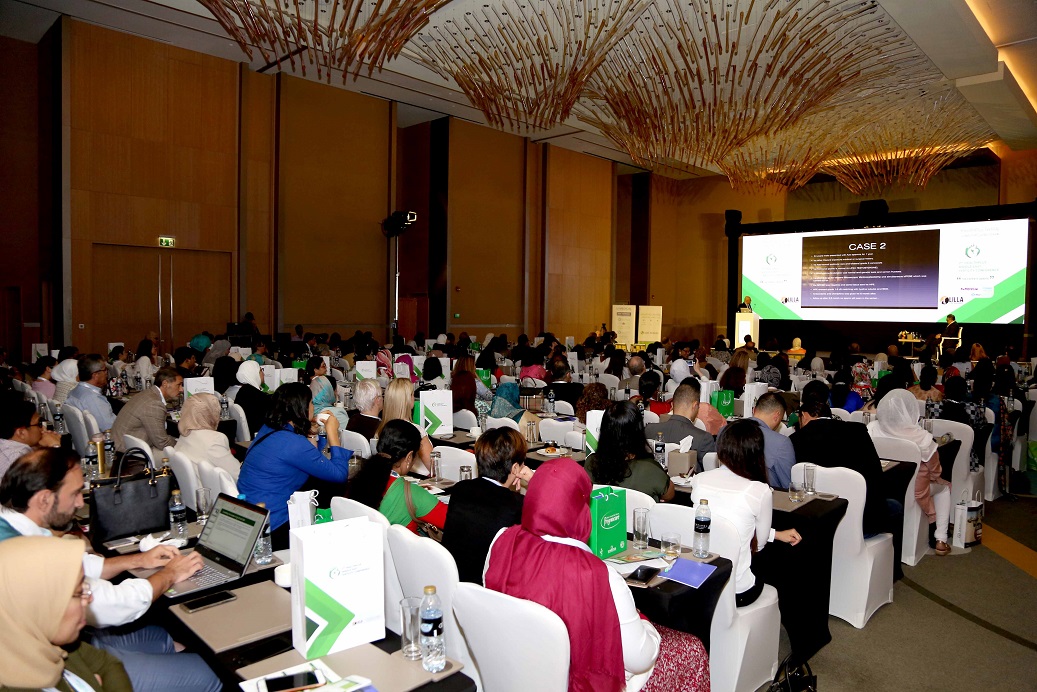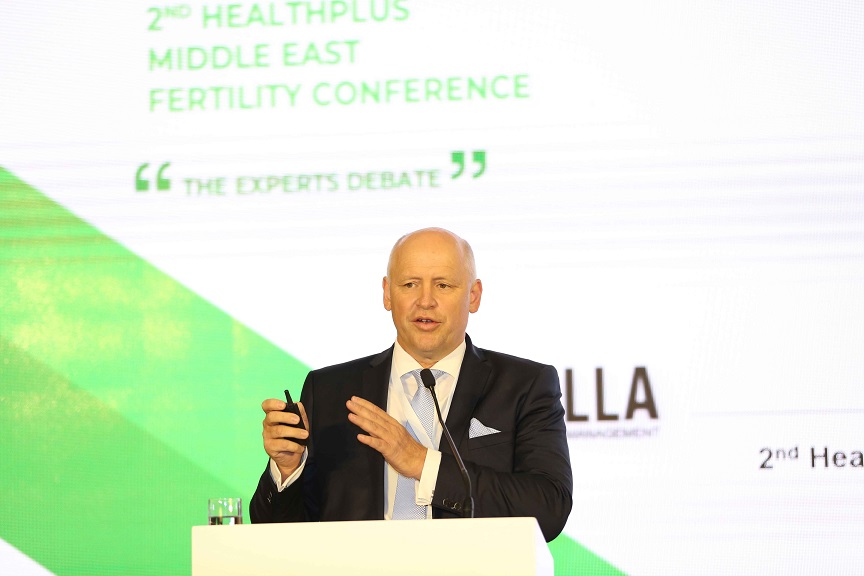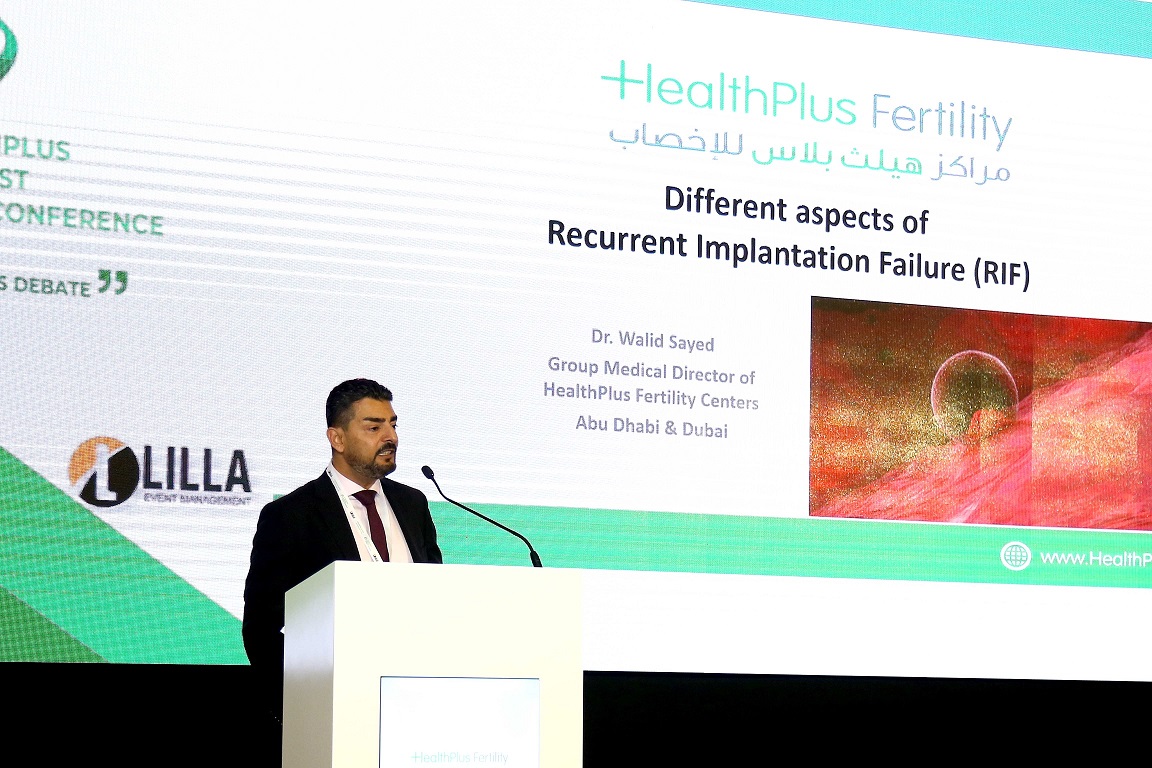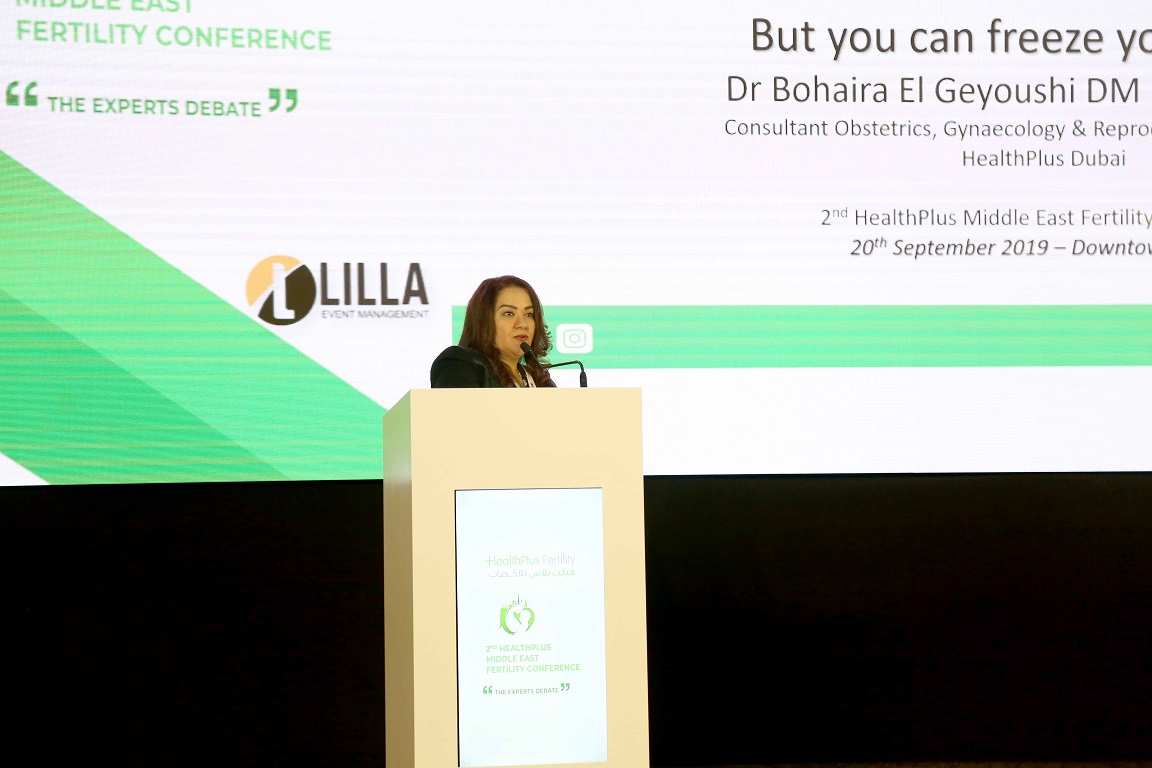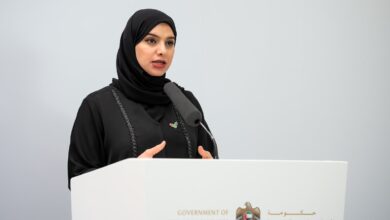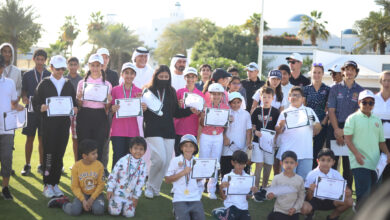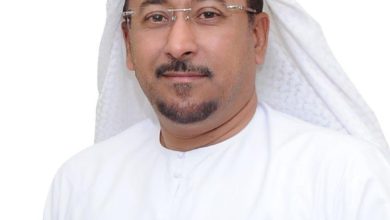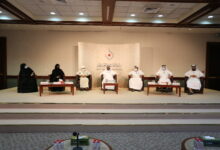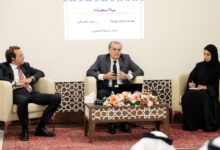Doctors’ Speech at the Second Annual Middle East Fertility Conference at the Sofitel Downtown Dubai
Dubai UAE
Sallam Sallam
Dr. Walid Sayed, IVF Consultant and Group Medical Director of HealthPlus Fertility Centers in the UAE, revealed during the 2nd Middle Fertility Conference the success in IVF for an Emirati couple who have gone through 23 unsuccessful IVF attempts at centers inside and outside the UAE.
Dr. Walid discussed the case in his lecture named: “Repeated failures of IVF and new technologies to overcome them”. Dr. Walid said that the couple were thoroughly examined when they visited the center. A comprehensive treatment plan including multiple specialties and technologies was tailored for the couple including multiple tests for chronic diseases, immunity diseases, preimplantation genetic testing for the embryo, weight management as obesity and such chronic diseases has a negative effect on the success of IVF treatments. The team was keen to choose the right time for the embryo transfer, and the couple were provided with mental counselling throughout the treatment journey.
“IVF is considered to be unsuccessful after 3 trials. The main reasons of unsuccessful IVF cycles could be caused by the low quality of embryos transferred to the uterus, or the wife suffering from chronic diseases such as diabetes or hypertension, or the wife has undergone multiple surgeries in the endometrium, or because of immune disorders or other diseases that need treatment before undergoing IVF and embryo transfers.”
He indicated that for treating cases of repeated failures modern techniques should be utilized within a comprehensive tailored treatment plan where the a combination of procedures should be performed including endometrial scratch, preimplantation genetic testing for the embryo, psychological counselling, applying advanced techniques in the IVF lab, using advanced embryo incubators, accurate monitoring of embryo cleavage, testing the embryo in its 5th day after fertilization and following comprehensive treatment protocols depending on each case, which are all available at HealthPlus Fertility Centers in Abu Dhabi and Dubai, and helps increase success rates of fertility treatments to 30% of the total number of couples who had recurring IVF failures previously.
Preimplantation Genetic Testing Prevents Genetic Diseases
Dr. Wael Ismail: Testing a sample from the embryo on its 5th day instead of the 3rd may increase the success rates of IVF
Dr. Wael Ismail, IVF Consultant and Medical Director of HealthPlus Fertility Center in Dubai, has stated during his lecture at the 2nd Annual Middle Fertility Conference held in Dubai on 20 – 21 September 2019, that testing a sample of the fertilized egg (embryo) on the 5th day of IVF and before transferring it to the uterus may increase the success rate of the treatment, as compared to samples taken on the 3rd day of the embryo, based on international studies, taking into account possible risks and complications.
During the doctor’s lecture on the importance of preimplantation genetic testing (PGT), he stated that the idea of embryo chromosomal testing has its supporters and critics. There are medical conditions that obliges PGT as it may increase the success rates of pregnancy in some cases. IVF in particular utilizes such testing in about 50% of the cases, and therefore, each case must be considered separately.
Dr. Wael pointed out that the timing of such tests has an important impact on the success of the embryo transplant in the uterus. The success rate of IVF may drop by up to 15 – 30% if the sample is taken on the 3rd day of the IVF process rather than the 5th day, according to certain studies. This is because, on the 5th day, samples are taken from external cells of the embryo, which are responsible for placental formation. Therefore, the sample does not affect the actual ability of the embryo to be implanted on the uterus. However, in certain cases, performing the test in the 3rd day is ideal.
“The goal of taking the sample from the fetus is to ensure the safety of embryos before implanting them back on the uterus, as well as ruling out some genetic diseases. Furthermore, many couples use IVF to rule out certain diseases that their other children have, such as thalassemia and other genetic diseases. Some other reasons include the old age of the wife, which could help reduce incidences of down syndrome or other chromosomal diseases,” Dr. Ismail concluded.
20% of infertile male have a fragmentated sperm DNA
Dr. Martin Imhof, from University of Vienna, Austria and one of the international speakers at the 2nd HealthPlus Fertility Conference held in Dubai on 20 – 21 September, discussion revolved around the influence of micronutrients on sperm DNA fragmentation and related female reasons of frequent abortion.
Dr. Imhof said, “An elevated DNA Fragmentation Index is associated with negatively affected male fertility, therefore measuring the sperm nuclear DNA integrity appears to be useful in predicting the ability of spermatozoa to fertilize oocytes. Sperm DNA fragmentation seems to rise due to variant reasons, especially with male age. Micronutrients can positively influence sperm DNA fragmentation, which was evident in recent literature and a comparative study including 300 patients. Studies also showed that around 20% of men suffering from infertility problems was due to DNA fragmentation of the sperms and its inability to fertilize the egg.”
“Our recommendation is that a diagnostic procedure should be the background for the preparation for subfertility treatment and the decision which technique in fertility treatment should be applied. We always should deal with both genders,” Dr. Imhof added.
He further said that the causes of DNA fragmentation in sperms, include aging, smoking, alcohol, some drugs and radiological or chemical treatments, exposure to environmental pollutants and pesticides, malnutrition, varicocele, and hormone dysfunction.
Freezing eggs is ideal for women suffering from cancer or delaying child-bearing
In her second lecture on egg freezing in certain medical cases, Dr. Bohaira ElGeyoushi stated that some women who suffer from cancer or chronic diseases and need chemotherapy, as well as women who delay marriage and pregnancy later in life for various reasons, fertility preservation would be a viable option, as frozen eggs are considered an opportunity for pregnancy in the future. This is done by inducing ovulation then performing an ovum pickup procedure and freezing them without fertilizing them or forming an embryo.
In the past, it was difficult to freeze the eggs because the water percentage in eggs is high, and therefore, the eggs would be damaged during the freezing, but in recent years, a scientific technique called Fast Freezing, also known as “Vitrification” has been developed to freeze the eggs reducing the damage to them.
She pointed out that one of the most important reasons for freezing eggs are cancer patients before starting their treatment, as chemotherapy can destroy the ovarian cells responsible for the production of eggs, and therefore, young female patients are advised to freeze their eggs for future use, in order to provide an opportunity for pregnancy after recovery.
Physician talks about her personal experience with fertility preservation
One of the IVF specialists participating in the 2nd HealthPlus Middle East Fertility Conference held in Dubai on 20 & 21 September 2019, has shared with the attendees her personal experience with fertility preservation.
The physician, Dr. Varsha Anand, Obstetrics, Gynecology & IVF Specialist at HealthPlus Fertility, has been working in the UAE for several years, and said, “I have delayed getting married, and decided to freeze my eggs to preserve the opportunity for pregnancy later in life. Studies show that number and quality of eggs in women decreases by age, causing a decrease in pregnancy rates, and increased rates of complications, and thus I made my decision to go for eggs freezing.”
She further stated, “In order to prepare for the ovum pick up procedure for the sake of fertility preservation, I was stimulated under medical supervision and a specialist IVF physician performed the eggs collection for preservation.” She stressed on the fact that freezing eggs remains the best and the most appropriate solution to increase the chances of pregnancy and reproduction in cases such as hers or young women who may have medical problems or undergo chemotherapy that may affect their fertility on a later stage.
Dr. Varsha said, “I was indeed happy to take this step, and I definitely encourage women to consult an IVF physician to discuss the available options for fertility preservation.”
